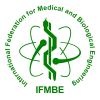Every year on 10 November, ISC celebrates World Science Day for Peace and Development to underline the importance and relevance of science in our daily lives, and to highlight the important role of science in society and the need to engage the wider public in debates on emerging scientific issues.
ISC cordially invites you, as well as your colleagues, members and wider networks, to the two webinars on 10 November – please feel free to share and promote these events among your community:
#UnlockingScience: Prioritizing Institutional Responses To Distrust In Science on 10 November, 13:30 – 14:30 UTC, https://council.science/events/unlocking-science/
Averting planetary peril: convening scientists and policymakers to tackle systemic climate risks on 10 November 2021, 11:30 – 12:45 UTC, https://council.science/events/averting-planetary-peril/
Let us know how your organization is celebrating World Science Day and if you have anything planned for this special occasion that you would like the ISC to promote and share with the wider ISC community.
Please find below additional updates from the International Science Council and the ISC community.
- ISC-UNDRR Hazard Information Profiles Launched
Shortly before the start of the 2021 ISC General Assembly, a new supplement to the “ISC-UNDRR Hazard Definition & Classification Review – Technical Report” (July 2020) was published comprising a description of each of the 302 hazard information profiles (HIPs). With 100 authors and 130 reviewers involved in the development of the HIPs this work has stimulated a process of multi-disciplinary and multi-sectoral collaboration on using science-based information to better define hazards and the data requirements to measure them effectively.
Access the publication: https://council.science/publications/hazard-information-profiles/
- Reminder: IUFoST-IUNS knowledge sharing dialogue on “The Power of Food Science and Technology and Nutrition for Sustainable Planet Health”
Join the two-day event around nutrition and food science, discussing how to move forward the outcomes of the 2021 United Nations Food Systems Summit, which set the stage for global food systems transformation to achieve the Sustainable Development Goals by 2030.
- 16 November, 08:00 – 12:45 UTC and 17 November, 15:00 – 18:15 UTC
- Register: https://council.science/events/food-science-technology-nutrition-sustainable-planet-health/
Please feel free to share and promote this event among your colleagues, members and wider networks.
- Join the Knowledge-Action Network on Emergent Risks and Extreme Events Steering Committee
The Knowledge-Action Network on Emergent Risks and Extreme Events (Risk KAN) provides an open platform for scientific communities, policy-makers, educators, civil society, media, industry, and donors, from across science disciplines and engineering, working on extreme events, disaster risk reduction and governance to exchange information, knowledge and data and engage in collaborative research activities. It is a joint initiative of ISC affiliated bodies – including Future Earth, IRDR and WCRP – as well as the WWRP to address systemic, complex and cascading risks by synthesis of various scientific approaches and products.
All ISC Members are invited to submit applications to further shape the (Risk KAN) Steering Committee by 26 November via https://www.risk-kan.org/sccall/.
Please feel free to share this call for applications with your colleagues, members and wider network.
- Recent opportunities within the ISC community
- Apply for the Singapore Academies South-East Asian Fellowship (deadline: 30 November 2021)
- Apply for a scholarship for Turcology research (deadline: 30 November 2021)
- Call for nominations for the Shaw Prize 2022 in Astronomy, Life Science & Medicine, Mathematical Sciences (deadline: 30 November 2021)
- Call for applications to host International Data Week 2025 (deadline: 31 January 2022)
- Recent Events within the ISC community
- 8 – 11 November: International Data Week – https://council.science/events/international-data-week/
- 9 November: Royal Irish Academy launch event on papers by the Higher Education Futures Taskforce – https://council.science/events/higher-education-futures/
- 9 November: UN Climate Action Awards – https://council.science/events/un-climate-action-awards/
- 10 November: ACSS webinar “A commitment to tomorrow – Narratives and imaginaries in the face of power” – https://council.science/events/commitment-to-tomorrow/
- 10 November: The Weather Bridge for Early Action – https://council.science/events/daraja-the-weather-bridge/
- 10 November: Climate-related conflict: arts-based mediation and recourse to redress – https://council.science/events/climate-related-conflict-arts-based-mediation-and-recourse-to-redress/
- 22 – 23 November: ASSA 50th Anniversary Symposium “The Social Future of Australia” – https://council.science/events/social-future-australia/

